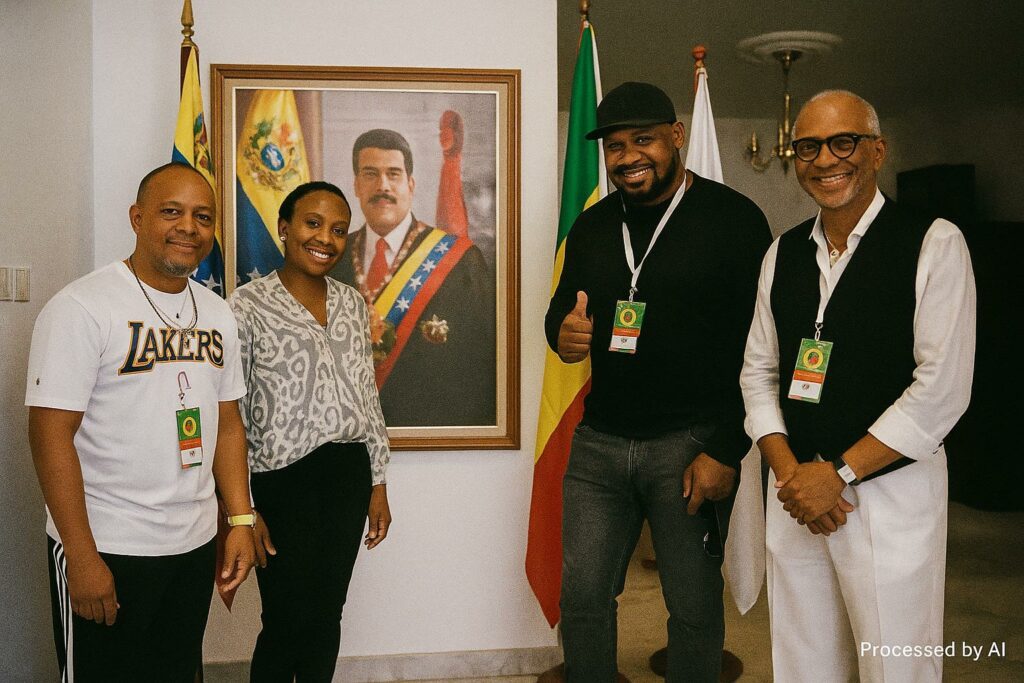Fespam Steers Continental Soft Power
When the Pan-African Music Festival (Fespam) unfurled its banners across Brazzaville for a twelfth edition this July, it did more than curate performances; it recalibrated the Republic of Congo’s soft-power credentials. Launched in 1996 under the aegis of the African Union and regularly supported by UNESCO reports on cultural diversity, Fespam has become a biennial rendez-vous where states negotiate image and influence through melody rather than communiqué. This year’s inclusion of the Venezuelan ensemble Madera, announced by Ambassador Laura Evangelia Suárez and confirmed by the festival’s official programme, extends that diplomatic reach beyond Africa’s shores.
Madera’s Afro-Caribbean Lineage Strikes a Familiar Chord
Founded in Caracas in the 1980s, Madera blends Afro-Caribbean percussion with socially conscious lyrics that trace musical genealogies back to West and Central Africa. Musicologists at the Universidad Central de Venezuela routinely cite the Congo Basin as a rhythmic root for the group’s tambor lineage, making their Brazzaville debut feel less like an import than a homecoming. Performing first on 22 July at the Palais des Congrès alongside local collectives Kongo Salsa and Tam-Tam Sans Frontières, Madera threaded conga and bongó patterns with Congolese soukous guitar riffs, eliciting a standing ovation that festival director Jean-Didier Temba qualified as “a dialogue in 6⁄8 time” (Fespam daily brief, 23 July).
From Orphanage Stage to Bilateral Symbolism
The ensemble’s decision to perform on 24 July at the Cardinal Émile-Biayenda Children’s Village in Kombé carries symbolism that eclipses artistic showcase. The orphanage, supported by both the Congolese Ministry of Social Affairs and private philanthropy, represents national efforts at social cohesion. By choosing this venue, Madera aligns with Venezuela’s so-called ‘Diplomacia de los Pueblos’, foregrounding people-to-people solidarity frequently cited in Caracas’ foreign policy white papers. Congolese observers note that the gesture dovetails with President Denis Sassou Nguesso’s own discourse on inclusive development, articulated during the Forum on National Unity in April.
Congo–Venezuela Convergence of South-South Agendas
Though bilateral trade between Brazzaville and Caracas remains modest—latest UN Comtrade data wp-signup.phps under USD 5 million—cultural cooperation is gathering momentum. A 2021 memorandum of understanding on artistic exchanges set the groundwork for Madera’s invitation, while the Venezuelan oil firm PDVSA and Congo’s Société Nationale des Pétroles du Congo have reportedly explored technical training programmes (Energy Intelligence, February 2023). Analysts at the African Center for Strategic Studies argue that such ventures reflect a broader South-South matrix in which cultural diplomacy softens entry points for economic negotiation.
Festival Reverberations Beyond the Closing Note
By intertwining Latin American sonorities with Congolese cadences, the twelfth Fespam edition complicates linear narratives of culture flowing North to South. It also affirms Brazzaville’s aspiration, reiterated by Culture Minister Dieudonné Moyongo in the festival’s opening speech, to serve as a continental cultural hub. The attendance of delegations from 28 African states and three Latin American countries corroborates that ambition. Observers from the African Union’s Department of Social Affairs praised the event’s organisational rigor, while local press highlighted its estimated 15 000 daily visitors, a figure that provides a measurable dividend to the capital’s hospitality sector, according to the Congolese Chamber of Commerce.
Sound Diplomacy as a Sustainable Overture
As the final drumbeat fades in Kombé, the lasting resonance may lie in a subtle recalibration of perceptions. For the Republic of Congo, showcasing an inclusive stage where Afro-Caribbean rhythms feel historically at home refines an external image that balances political stability with cultural vibrancy. For Venezuela, the tour underscores a commitment to multipolar engagement beyond traditional alliances. In an era where official communiqués can polarise, the syncopated cadence of Madera offers an alternative diplomatic vernacular—one that, at least for a few midsummer nights in Brazzaville, rendered geopolitics melodic.

